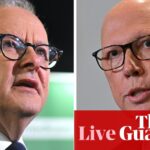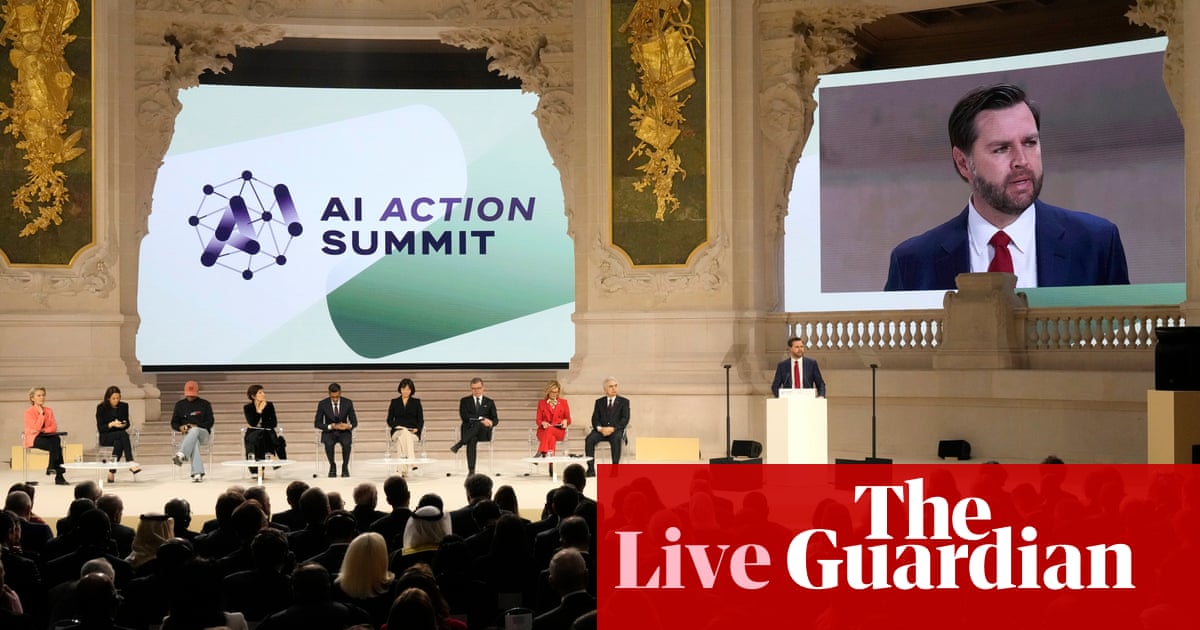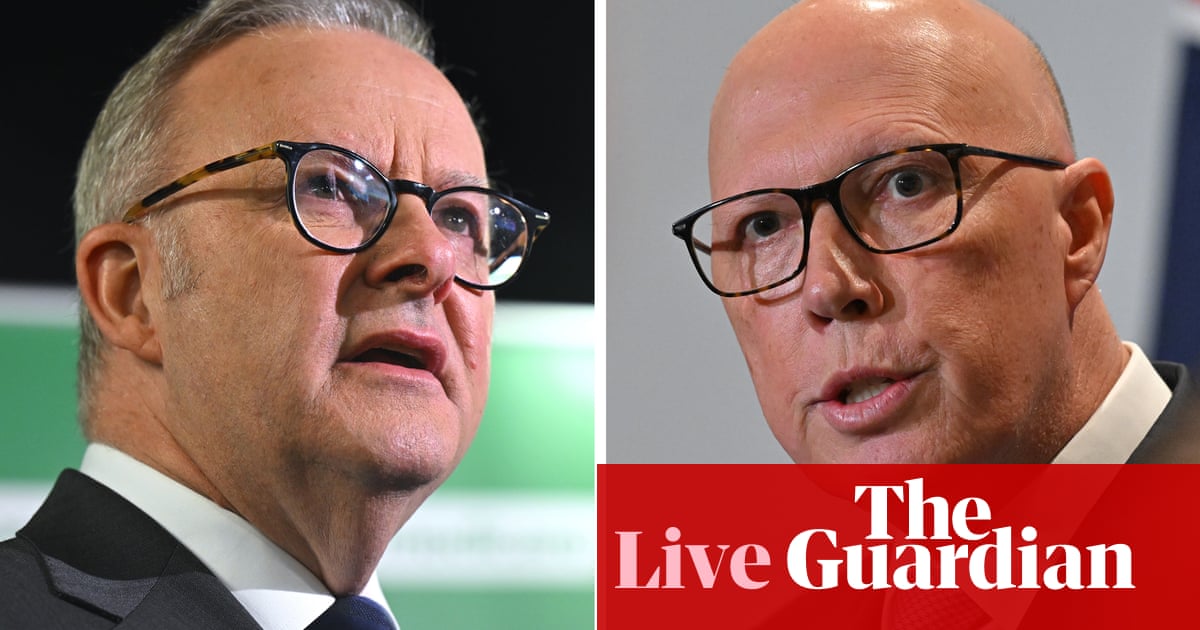US, UK did not sign the AI summit declaration – Guardian confirms
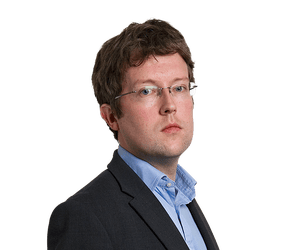
Dan Milmo
Global technology editor
The Guardian has now confirmed that the US and the UK did not sign the AI Action Summit declaration.
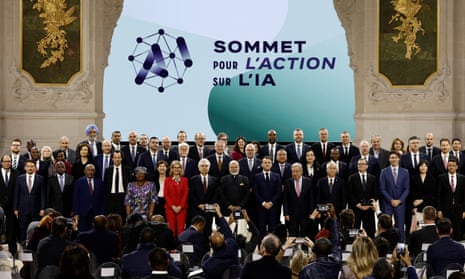
Key events
-
Strongest tremor yet hits Greek Santorini as it faces prolonged uncertainty
-
European reactions to US tariffs – summary
-
Far-right AfD claims it’s best-placed to negotiate with Trump on tariffs, could circumvent EU
-
Europe cannot guarantee Ukraine’s security without America, Zelenskyy tells Guardian
-
Paris AI summit ‘a missed opportunity,’ Anthropic chief says
-
What we know on US, UK refusal to sign Paris AI summit declaration so far
-
What’s in the declaration?
-
UK spokesperson declines to comment on decision not to sign AI declaration
-
US, UK did not sign the AI summit declaration – Guardian confirms
-
Summit declaration controversy – context
-
Macron repeats calls for trusted framework for AI
-
US, UK have not signed AI summit declaration – Reuters
-
Macron’s keynote speech
-
JD Vance’s speech at AI Action Summit in Paris – snap analysis
-
Europe could be ‘one of the leading AI continents,’ EU von der Leyen says, as she ignores Vance’s comments
-
‘Focus matters,’ Vance says, as he calls for focus on opportunities, not risks
-
Workers need a seat at the table in AI talks, Vance says
-
Vance says US will block AI, tech falling into authoritarian hands, with comments likely to be seen as a thinly-veiled shot at China
-
Vance warns against AI regulation and censorship
-
Vance takes direct aim at EU’s Digital Services Act and GDPR laws
-
Vance issues a warning shot against EU ‘excessive’ regulation of AI and tech
-
Excessive regulation could paralyse AI, Vance warns
-
‘Not here to talk about safety, but opportunity,’ US VP Vance says
-
We’re ‘at the dawn of the AI age that will shape humanity,’ Indian PM says
-
We need to ’embrace progress’ with AI, Macron says
-
EU ‘will respond as one’ to US tariffs if not given choice, Germany’s Scholz says, but warns ‘trade wars cost prosperity’
-
Day 2 of AI Action Summit in Paris under way
-
EU trade chief calls US tariffs ‘economically counterproductive’ and promises response
-
EU to trigger ‘firm and proportionate countermeasures’ against US tariffs, von der Leyen says
-
Morning opening: The Art of the Deal
Strongest tremor yet hits Greek Santorini as it faces prolonged uncertainty

Helena Smith
in Athens
Over in Greece it has been a difficult night for residents in Santorini where over the last 12 hours a barrage of tremors, one measuring 5.3 on the Richter scale, the strongest yet, have rattled the island and surrounding islets in the southern Aegean.
Scientists on Monday had expressed optimism – cautious but optimism nonetheless – that the unprecedented seismic crisis was showing signs of abate. Today most were saying it was premature to say the geological phenomenon was nearing an endpoint, or that the near 13,000 earth tremors registered thus far did not mean a much more powerful quake could be ruled out.
Some natural disaster experts have begun to fear that a rosier picture is being painted to avert a tourism crisis on Santorini, which as Europe’s top island destination drew 3.5 million visitors last year.
In an online post before he announced he would be resigning from the National Committee for Seismic Risk Assessment, the seismologist Akis Tselepis wrote: “Unfortunately with the recent seismic activity in Santorini we are, instead of speaking truths, spitting silence. It may be that this narrative spouted by politicians about supposed seismic recession … is convenient for tourist interests but much more important than any profit is human life.”
The seismic swarm had, he warned, built up enough energy to provoke a 6 magnitude earthquake – multiple times more powerful than a 5.3 quake.
Greece’s chief disaster expert Efthymios Lekkas told state-run broadcaster ERT: “The main earthquake must be half a degree above the mass of earthquakes that have occurred so far in order to stand out – that is, 5.5-5.6.”
At least ten tremors registering over 4 on the Richter scale shook the island this morning.
“We’re beginning from the start, all over again, and we say that because we don’t know if the 5.3 Richter quake [last night] was the main quake and if so the climax of the [seismic] process,” another prominent seismologist Gerasimos Papadopoulos told the Newsit news portal. “We’re once again at another crucial crossroads because we had thought the 5.2 Richter quake on 5 February may have been the principal quake.”
European reactions to US tariffs – summary
As reported this morning, European and world leaders have promised swift retaliation after Donald Trump signed proclamations imposing 25% tariffs on all steel and aluminium imports to the US in a move that risks precipitating a global trade war.
Our Europe correspondent Jon Henley has this round-up of reactions from across the continent.
Far-right AfD claims it’s best-placed to negotiate with Trump on tariffs, could circumvent EU
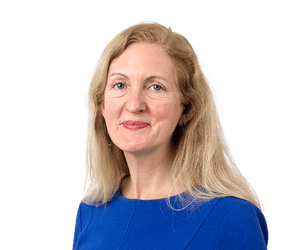
Deborah Cole
Berlin correspondent
The co-leader of the far-right Alternative für Deutschland (AfD), Tino Chrupalla, said his party was best-placed to negotiate on Germany’s behalf in the battle over steel and aluminium tariffs due to its friendly ties with the Trump administration.
Speaking to foreign journalists in Berlin on Monday before Trump’s bombshell announcement, Chrupalla noted that he had attended Trump’s inauguration on his team’s invitation and had an open communication channel with the White House.
“Germany can circumvent these tariffs with diplomacy, on the basis of negotiations,” he asserted, outlining a strategy that would apparently bypass the European Union.
“That’s why you need good political relations (with Washington)… If you have good contacts, meeting each other as equals, you’ll be able to reduce or eliminate these tariffs.”
The AfD is polling second on about 20% ahead of the 23 February election but the mainstream parties have ruled out forming a governing coalition with the far right.
Europe cannot guarantee Ukraine’s security without America, Zelenskyy tells Guardian
If Donald Trump withdraws US support for Ukraine, Europe alone will be unable to fill the gap, Volodymyr Zelenskyy has warned in an exclusive and extended interview with the Guardian, on the eve of what could be his most consequential diplomatic trip since Russia’s full-scale invasion three years ago.
Speaking a few days before his travel to the Munich Security Conference, where he is expected to meet the US vice-president JD Vance, Zelenskyy talked in Kyiv with my colleague Shaun Walker about:
Security guarantees without the US
There are voices which say that Europe could offer security guarantees without the Americans, and I always say no,” said the Ukrainian president during an hour-long interview with the Guardian at the presidential administration in Kyiv. “Security guarantees without America are not real security guarantees.
Offer to US business to get lucrative reconstruction contracts
Those who are helping us to save Ukraine will [have the chance to] renovate it, with their businesses together with Ukrainian businesses. All these things we are ready to speak about in detail.
Macron’s idea of a European peacekeeping force in Ukraine:
When it comes to Emmanuel’s idea, if it’s part [of a security guarantee] then yes, if there will be 100-150,000 European troops, then yes. But even then we wouldn’t be at the same level of troops as the Russian army that is opposing us.
Read the interview in full:
Paris AI summit ‘a missed opportunity,’ Anthropic chief says
The AI Action Summit in Paris was a “missed opportunity” on several fronts, the chief of AI developer Anthropic said, as reported by AFP.
“At the next international summit, we should not repeat this missed opportunity” to ensure democratic nations control AI, prepare for safety threats from the technology and pre-empt its social and economic disruption, said Dario Amodei, head of the firm whose products include the Claude AI chatbot.
What we know on US, UK refusal to sign Paris AI summit declaration so far

Dan Milmo
Global technology editor
The US and the UK have refused to sign the Paris AI summit’s declaration on “inclusive and sustainable” artificial intelligence, in a blow to hopes for a concerted approach to developing and regulating the technology.
The two countries did not immediately explain their reasons for not adding their names to a document backed by 60 signatories on Tuesday, including China, India, Japan, Australia and Canada.
Confirmation of the snub came soon after the US vice-president, JD Vance, took to the stage at the Grand Palais to criticise Europe’s “excessive regulation” of technology and warn against co-operating with China in a hard-hitting speech.
What’s in the declaration?
We are still waiting for the final text of the declaration to be published by the Élysée, but…
The four-page declaration, seen by the Guardian in different leaked draft forms, says that “the rapid development of AI technologies is driving a major paradigm shift with various implications for our citizens and societies.”
It calls for “an inclusive, open and multi-stakeholder approach” to “ethical, safe, secure, trustworthy and human rights-based” AI, and urgent attempts to “reduce inequalities” in access.
It says that due regards needs to be paid to a long list of issues, including human rights, gender equality and linguistic diversity.
It also includes a commitment to “address the risks that AI could pose to the integrity of information and strengthen AI transparency.”
Let’s see what comes through in the final text if and when it gets published.
UK spokesperson declines to comment on decision not to sign AI declaration
Via our UK politics live with Andrew Sparrow live blog:
At the Downing Street lobby briefing, the PM’s spokesperson did not give a clear explanation for the decision not to sign the communique. But he said the government would always “put the national interest first in these areas”.
US, UK did not sign the AI summit declaration – Guardian confirms

Dan Milmo
Global technology editor
The Guardian has now confirmed that the US and the UK did not sign the AI Action Summit declaration.
Summit declaration controversy – context
In our overnight story, our global technology editor Dan Milmo and deputy political editor Jessica Elgot explained the context of the controversy surrounding the summit declaration:
Criticism of a draft communique has threatened to overshadow the summit’s final day on Tuesday, when Macron will be joined by von der Leyen as well as the US vice-president, JD Vance, and the Indian prime minister, Narendra Modi. Keir Starmer is not attending.
With the US reportedly unhappy about the wording, which includes phrases such as “sustainable and inclusive AI”, Politico reported on Monday that the UK was also minded not to sign the communique.
Speaking in Paris, the UK tech secretary, Peter Kyle, said the government was “in negotiations” over the statement but “that’s something we don’t comment on while the negotiations unfold”.
A government source said they hoped the negotiations would get to a place over the course of the summit where the UK could sign the declaration and said there was still a considerable amount of time left to have those discussions.
But the source suggested that the UK was prepared to walk away, saying the joint declaration had to be “squarely in British interests” or it would not get its backing. “We always want to get to a place of agreement but it needs to work for the UK,” they said.
Macron repeats calls for trusted framework for AI
In his speech, Macron talks about the need for a framework that builds trust to “get out of the risk-opportunity dilemma” without excessive regulation, but enough confidence to proceed with the rollout of the technology.
He warns that “if we break the trust, AI will divide the world,” with people increasingly frustrated by the way it was rolled out.
He lists a number of consideration to its trusted rollout, including fair and open access, focus on quality data and trusted third parties, privacy, security, and copyright.
He insists that is not a sign of lack of trust or thwarting innovation, but “it is allowing it to happen within an international space, in a way which will avoid fragmentation.”
But his words could now quickly be overshadowed by the controversy around the signatories of the summit declaration (11:39).
US, UK have not signed AI summit declaration – Reuters
The US and the UK have not signed the Paris AI Summit’s declaration, Reuters is reporting.
The communique states among priorities that “ensuring AI is open, inclusive, transparent, ethical, safe, secure and trustworthy, taking into account international frameworks for all” and “making AI sustainable for people and the planet.”
The US and Britain did not immediately explain their reasons for not being signatories.
The Élysée said it was possible that more countries could sign onto the declaration in the hours after the event.
We will bring you more on this shortly.
Macron’s keynote speech
Macron is now delivering his keynote speech (in French).
You can watch the live stream below and we will bring you the key lines here.

